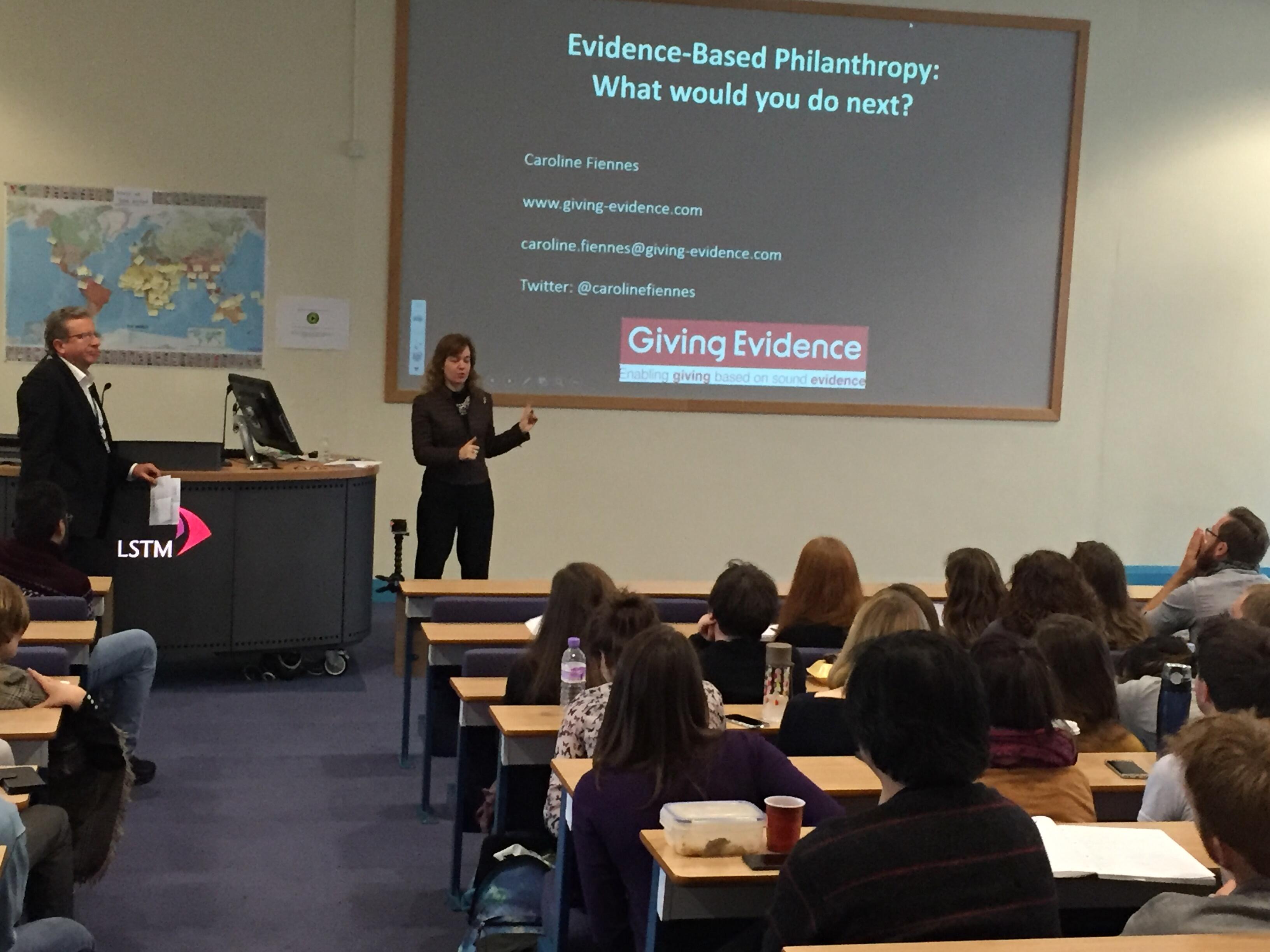
With the news full of catastrophes, images of communities in need and what charities can do, Caroline Fiennes seminar this week was particularly relevant. A world leader in advising philanthropists and donors how to invest wisely, Caroline is a unique specialist with unique viewpoints. Her seminar, Evidence-based charity: a good idea or terrible idea, was to a packed Nuffield theatre with over 100 staff and students.
Caroline Fiennes, former physicist, founded and directs “Giving Evidence,” a company which enables charitable giving to be based on sound evidence. Caroline has contributed to Freakonomics, BBC TV, FT, Forbes, Money Week, The Economist, The Guardian and many others, and has changed the debate around charities’ effectiveness.
Caroline started out by saying just because it sounds a good idea doesn’t mean it is. “Scared straight” is a programme in the US to prevent young offenders reoffending by exposing them to the horrors of prison-but now there is good empirical evidence that it does harm: seven randomised control trials showed that this had a negative impact on the young people and, in some cases, actually increased reoffending in the participants. Looking at the effectiveness of the interventions is one part of Caroline’s brief, and she outlined how medicine is miles ahead of most social interventions with regards to utilising evidence-based research. Caroline talked about direct giving, where the recipient is visible and known, to more indirect giving, where this is more indirect but the footprint of the giving is bigger.
Caroline talked about monitoring in charities, and how often claimed reports of benefit had little evidence to back them up. Sometimes different ways of analysing the same programme gives contradictory results: which data do you present? The culture is to always to show the best-even if this doesn’t reflect the truth.
The take home message was clear: we need evidence for the interventions to be delivered, evidence about what makes a charity effective, and the most effective ways of giving. An inspiring talk to stimulate us all-academics, students, and the public- to ensure good giving.
Caroline’s book, “It ain’t what you give, it’s the way that you give it” is in the LSTM Library, available on Amazon, and a few copies are with Paul Garner. It’s a well written, interesting book that gives a great overview of the whole topic.